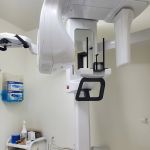Dental Care Tips for Smokers
Smokers face unique challenges when it comes to maintaining good oral health. The harmful chemicals in cigarettes can significantly impact the condition of your teeth and gums, leading to issues like bad breath, stained teeth, gum disease, and an increased risk of tooth loss. This guide offers essential dental care tips for smokers to help maintain a healthier smile and better oral hygiene.
1. Impact of Smoking on Dental Health
Smoking is one of the leading causes of various oral health problems. The harmful substances in cigarettes, including nicotine and tar, can stain teeth, increase plaque build-up, and lead to the development of gum disease. Smokers are also at a higher risk for conditions like oral cancer and tooth loss.
Additionally, smoking affects blood circulation in the gums, making it harder for the body to fight off infections. This weakened immune response can cause more severe gum disease and slower healing after dental procedures.
Teeth Staining
One of the most noticeable effects of smoking on your dental health is the discoloration of your teeth. The nicotine and tar in cigarettes leave stubborn yellow or brown stains on the teeth, which regular brushing often cannot remove. While teeth whitening treatments may help, smokers may need more frequent cleanings and touch-ups to maintain a brighter smile.
Gum Disease
Smokers are at a significantly higher risk of developing gum disease. Smoking reduces blood flow to the gums, weakening their ability to fight off infections. As a result, smokers may experience more severe gum disease, which can lead to tooth loss if left untreated.
2. Dental Care Tips for Smokers
Maintaining good oral hygiene is crucial for smokers. The following dental care tips can help protect your teeth and gums from the damaging effects of smoking:
Brush and Floss Regularly
Brush your teeth at least twice a day using fluoride toothpaste to help remove plaque and reduce the risk of tooth decay. Flossing daily is equally important to remove food particles and plaque from between your teeth and along the gum line. Using a soft-bristled toothbrush can also help avoid irritating your gums, which may already be vulnerable due to smoking.
Use Mouthwash
Rinse your mouth with an antibacterial mouthwash to help reduce plaque and bacteria buildup. Mouthwash can also help mask bad breath, a common problem for smokers. Choose a mouthwash that contains fluoride for extra protection against cavities.
Quit Smoking
While it's not an easy step, quitting smoking is the most effective way to improve your dental health. By quitting, you can reduce the risk of gum disease, tooth loss, and oral cancer. Plus, your teeth will become less stained, and your breath will improve.
Regular Dental Checkups
Regular dental checkups are especially important for smokers. Visit your dentist at least every six months for a thorough cleaning and early detection of dental problems. Your dentist can provide professional teeth whitening treatments and monitor the health of your gums to catch any signs of gum disease early.
Hydrate and Avoid Sugary Drinks
Smoking can lead to dry mouth, which makes it easier for bacteria to thrive. Staying hydrated helps keep your mouth moist and reduces the risk of oral health problems. Additionally, limit your consumption of sugary drinks like soda, as they can increase the likelihood of cavities and plaque buildup.
3. Recommended Products and Services
To improve your dental health as a smoker, consider using products specifically designed to help reduce the effects of smoking on your oral health. Dentistry Toothtruth offers a range of oral care products, including advanced toothbrushes, mouthwashes, and teeth whitening treatments that can be beneficial for smokers. These products are designed to help maintain cleaner teeth, fresher breath, and healthier gums.
Additionally, if you're a smoker looking for professional dental services, consider visiting a dentist who specializes in the treatment of smokers’ oral health. Services such as deep cleanings, gum disease treatments, and oral cancer screenings can help address the specific dental concerns associated with smoking.







 Udis & Sethi Orthodontics5.0 (128 review)
Udis & Sethi Orthodontics5.0 (128 review) Oelbaum & Kagan Dentistry4.0 (578 review)
Oelbaum & Kagan Dentistry4.0 (578 review) Huynh Long T DMD5.0 (7 review)
Huynh Long T DMD5.0 (7 review) Western Dental & Orthodontics4.0 (1345 review)
Western Dental & Orthodontics4.0 (1345 review) Longwood Dental Group4.0 (544 review)
Longwood Dental Group4.0 (544 review) Children Dental World4.0 (1512 review)
Children Dental World4.0 (1512 review) The Importance of Oral Health Education During Pregnancy for a Healthy Pregnancy
The Importance of Oral Health Education During Pregnancy for a Healthy Pregnancy Best Tips for Brushing Your Teeth Properly for Healthy Gums: Essential Techniques for Oral Health
Best Tips for Brushing Your Teeth Properly for Healthy Gums: Essential Techniques for Oral Health Why Skipping Dental Checkups Can Lead to Bigger Oral Health Problems
Why Skipping Dental Checkups Can Lead to Bigger Oral Health Problems Advantages of Porcelain Dental Restorations
Advantages of Porcelain Dental Restorations How Can Diabetes Cause Tooth and Gum Problems? Preventing and Managing Oral Health Issues
How Can Diabetes Cause Tooth and Gum Problems? Preventing and Managing Oral Health Issues Healthy Habits for Promoting Good Oral Health and Hygiene: Tips for a Healthy Smile
Healthy Habits for Promoting Good Oral Health and Hygiene: Tips for a Healthy Smile